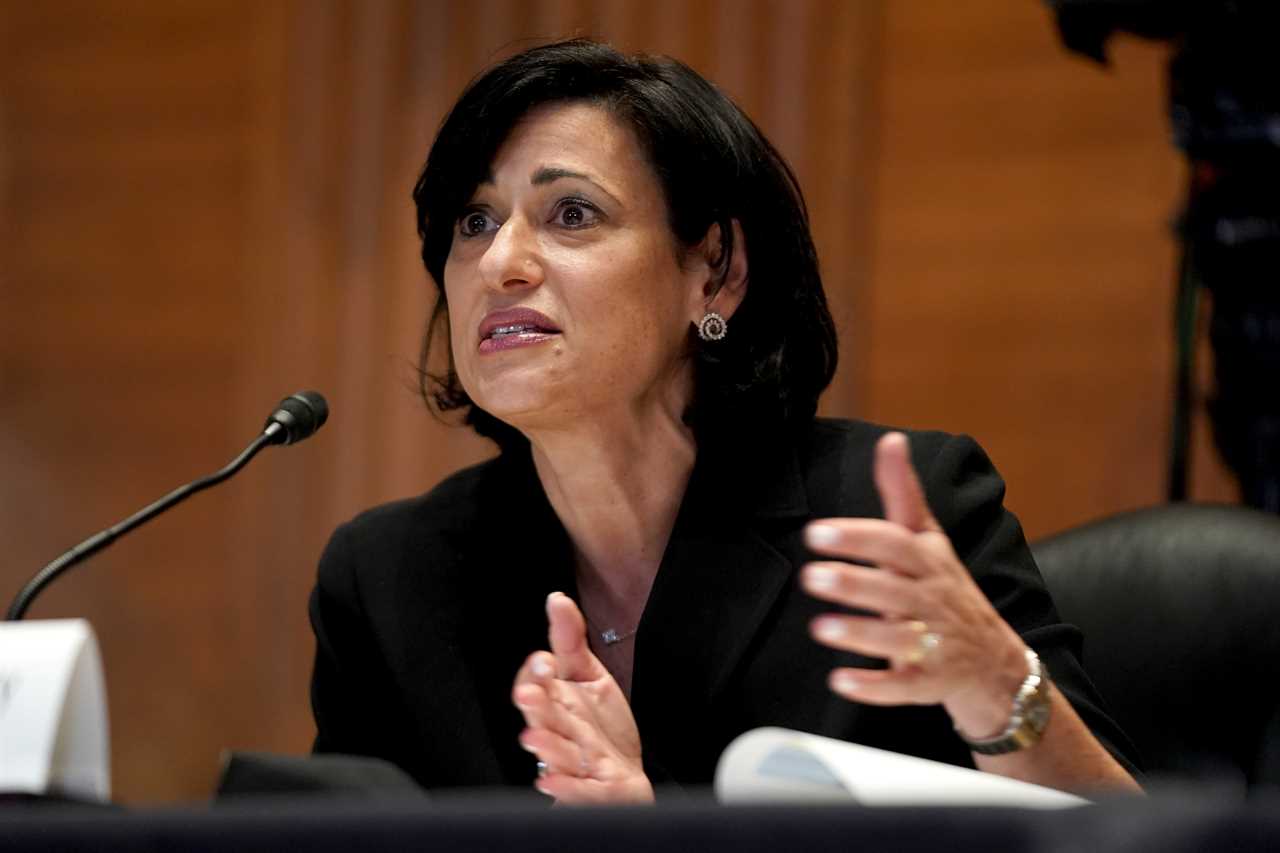
The Centers for Disease Control and Prevention is asking its staff to improve how it collects and analyzes public health data, according to an agency email obtained by POLITICO.
In the March 16 email, Dan Jernigan, the CDC’s deputy director for Public Health Science and Surveillance, points his staff to a letter from Director Rochelle Walensky on the same day. Her note asked agency employees “to drive the success of the Data Modernization Initiative'' — a CDC plan to strengthen the health surveillance infrastructure it relies upon.
“Among the things Dr. Walensky shared in her letter, are five big commitments that will push us to work more collaboratively by moving from a mindset of ‘my data’ to ‘our data,’” the email reads.
The email is the first formal indication that the CDC is taking new steps to remedy the data gaps that have hindered the agency’s Covid-19 response. And it comes amid calls by lawmakers and public health officials that the agency find ways to ensure more accurate data to respond to the next pandemic — information that can easily be shared among hospitals, state health departments and the federal government.
In an interview with POLITICO before the email was sent, Jernigan said the modernization effort will include unifying public health data systems at the state and federal levels, ensuring the CDC is relying on information that is up to date and can be used in real-time, and helping states hire staffers to work on data collection and analysis.
Over the last two years, the CDC has struggled to keep up with the rapid spread of the virus largely due to the country’s antiquated and aggregate public health data infrastructure. The agency depends on states to gather data from lab reports and hospital records, which is then submitted to the CDC. But state health departments have been underfunded and the methods they use to study disease outbreaks such as Covid-19 are disparate and outdated.
States rely on several sources to gather public health data, including through contact tracing, lab reports and individual reporting. Some still depend on labs to fax results while others work with systems in which duplicate positive entries can’t be eliminated.
“The data issues are real,” former CDC director Jeffrey Koplan said on Wednesday during a panel hosted by Yale University. “It's really inconceivable that we're unable to get common measures from state to state to federal. This undermines what we're trying to do and that needs to be corrected.”
The CDC is working on solutions designed to help states better access all the information they are receiving faster and more holistically.
Jernigan likened the way that local health departments could eventually access data to Travelocity, a system that not only allows users to book a flight, but is able to pull information from various sources to suggest a car rental, hotel, and things to do at your destination.
A similar, cloud-based framework for public health information could one day allow local health staff to quickly analyze data and understand what is happening in their communities rather than trying to plug data into old systems.
“You can now say, ‘I see that you’ve got that person who was positive and died, and they actually live in an area with a social vulnerability index that is high, and they happen to be in an area that is serviced by a federally qualified health center and we have some public health money,’” Jernigan said. “You can now have that data, and have the data work for you, rather than what’s been happening, which is people having to work to get the data. People have been spending 80 percent of their time just collating information, taking a fax and putting it into one of their systems.”
The CDC and public health officials across the country have pressed Congress for more money for data modernization. While lawmakers have approved funding to help improve the CDC’s data methods, it has not been enough to change how the agency collects and analyzes the data in public health emergencies, dozens of state officials have told POLITICO.
At the beginning of the pandemic, the Trump administration tried to adapt the federal government’s public health data capabilities to close some long-standing gaps. The White House tapped the Department of Health and Human Services to take over part of the U.S. Covid-19 data collection. Department officials created HHS Protect — a system that asked hospitals to submit the information through TeleTracking, a private contractor, rather than through the CDC. The system is supposed to give U.S. officials a greater view into how infectious diseases like Covid-19 can strain hospital resources. The CDC has recently taken over the project as part of its push to improve data collection and analysis.
To better understand how Omicron and its subvariant impact transmission and severe disease, the CDC is reevaluating Covid-19 hospitalizations to decipher how many people are seeking care for the virus and how many tested positive upon arrival.
Jernigan said the CDC is dedicating $3 billion to help state public health departments recruit new employees and train existing ones who can improve the way the local data systems operate. State health officials in Louisiana have hired more staff to work on the state’s electronic lab reporting program, ensuring the test results that flow into the state health office are done so through computers, rather than faxes or emails, and that the results are accurate.
----------------------------------------
By: Erin Banco and Krista Mahr
Title: CDC email: Let’s do better with ‘our data’
Sourced From: www.politico.com/news/2022/03/21/cdc-email-data-walensky-00018614
Published Date: Mon, 21 Mar 2022 03:30:00 EST






